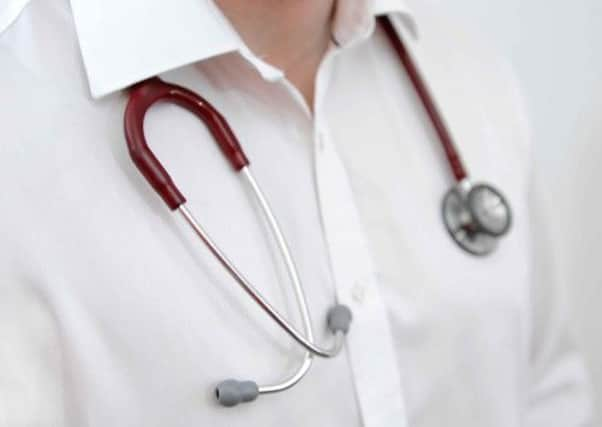Doctors’ surgeries face £400m funding ‘black hole’


The data, published at the start of the Royal College of GPs’ annual conference in Harrogate, shows the “shocking extent of successive under-investment in general practice” over the last three years at a time when the amount of money going to hospitals “continues to rise”, the Royal College of GPs said.
It called on the Government to plug the gap, arguing that the amount spent on general practice per person in England has dropped 7% in real terms due to a combination of funding cuts and population growth.
Advertisement
Hide AdAdvertisement
Hide AdEarlier this week, the Prime Minister said he wanted surgeries to be open from 8am-8pm seven days a week to counter complaints that working people find it hard to get seen by a family doctor.
He pledged £50 million to encourage GPs to offer weekend and evening appointments. Ministers also hope GPs will pioneer more effective use of technology - such as carrying out consultations with patients via video calls, email and phone.
Today’s figures suggest that, in 2012/13, real-terms investment in general practice fell to £8,459 million from £8,865 million in 2009/10.
The College said more than 90% of patient contacts within the NHS are carried out in general practice yet it receives only 9% of the entire NHS budget.
Advertisement
Hide AdAdvertisement
Hide AdRCGP chair Dr Clare Gerada said: “Our figures should send out a warning to Government and the rest of the NHS that we will soon have a catastrophe on our hands if urgent action is not taken to reverse the decline in funding for general practice and provide GPs with an appropriate amount to spend on each patient every year.
“For years politicians, health professionals and patients alike have been saying that we must shift the centre of gravity of the health service away from hospitals, with more care delivered to patients closer to home, and a greater focus on prevention.
“But these figures show that we are in fact moving in the opposite direction.
“GPs are keen to do more for their patients but we are heaving under the pressure of ever-increasing workloads and diminishing resources, including a chronic shortfall of GPs.
Advertisement
Hide AdAdvertisement
Hide Ad“Some of us are routinely working 11-hour days with up to 60 patient contacts in a single day and this is not safe or sustainable, for patients or GPs. We simply cannot do more without the funding and resources to back it up.
“We are working our hardest to make sure that patients are not affected but the status quo is no longer an option.
“We must have an emergency package of additional investment for general practice to protect GP services and protect our patients from cuts to their care.”
She said that once general practice “starts to crumble, the entire NHS will follow with disastrous consequences for our patients”.
Advertisement
Hide AdAdvertisement
Hide AdShe added: “In August this year, the Government announced an additional £500 million over the next two years for A&E departments.
“What we need is our fair share of funding - at least 10% of the entire NHS budget and at least 10,000 more GPs.”
The figures are drawn from comparisons of annual data produced by the Health and Social Care Information Centre.
Dr Chaand Nagpaul, chair of the British Medical Association general practitioners committee, said: “The economic and bureaucratic straitjacket that many GPs find themselves in has led to a decline in morale and is unsustainable, with GPs unable to provide patients with the time, access and level of care that they deserve.
Advertisement
Hide AdAdvertisement
Hide Ad“The Government needs to rapidly invest in more GPs, staff and resources so practices have the capacity to meet rising demand.”
A Department of Health spokesman said: “GPs do a vital job. Investment in general practice increased 1.3% last year but we know GPs are under pressure to do more with tight budgets.
“That’s why this week we announced a £50 million fund for GPs who want to pioneer new ways of working, to help make the best use of their time.
“We have also asked Health Education England to work towards getting 50% of medical students to become GPs so they have more resources.”
Advertisement
Hide AdAdvertisement
Hide AdDr Gerada told BBC Breakfast that general practice was “at tipping point” with doctors overworked and exhausted.
“If we are working beyond 11 hours we are not safe,” she said.
“You don’t want a tired GP any more than a tired pilot or a tired surgeon. We can’t keep expecting them to do more.”
The medic said lack of GP funding has already manifested itself in bigger queues for patients, a longer wait for an appointment and delays in getting through to the surgery on the telephone.
She added that some services, such as counselling, are being cut because of the squeeze.